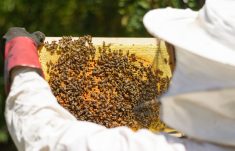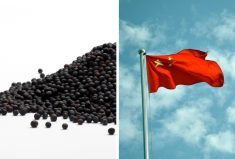Canada’s organic food exports saw a sharp drop in 2021 compared to 2020’s banner year.
Export totals dropped to $417.3 million from nearly $608 million in 2020, according to new figures from the Canadian Organic Trade Alliance (COTA) presented in a Sept. 12 webinar.
However, that drop doesn’t look as stark when compared to 2019, when exports were $461 million.
Read Also

Trade uncertainty, tariffs weigh on Canadian beef sector as market access shifts
Manitoba’s beef cattle producers heard more about the growing uncertainty they face as U.S. tariffs, and shifting trade opportunities, reshape their market.
Exporters saw “lots of challenges,” said COTA executive director Tia Loftsgard.
It was a tough production year. Drought affected organic field crops on the Prairies and floods hampered B.C.’s organic blueberry crops, Loftsgard told the Co-operator in an interview.
The industry also saw multiple supply-chain challenges and the cost of shipping spiked.
“That was a huge one,” said Loftsgard.
Cost and availability of shipping containers was an issue, as was fluctuating currency. Exporters also found it difficult to get products to market quickly.
At home, however, demand for organic is strong. Canadians spent nearly $9.4 billion on organic goods in 2021, 80 per cent of that on food and beverage. This is up from about $8.1 billion in 2020.
Twenty-three per cent of Canadians said they were buying more organic than a year ago.
Canada registered 374 new organic operators, which include growers, processors, livestock and fish producers. This represents a five per cent year-over-year increase.
The ranks of organic growers gained 130 new members, a two per cent year-over-year increase, but the number of organic livestock producers shrank by 15 for a two per cent decline.
Eight new processors were certified organic in 2021.
Certified organic acres saw a drop in 2021. Acres fell to just above three million from about four million in 2020. While just over 37,000 new organic acres were certified, more acres lost their certification, Loftsgard told the Co-operator.
Wheat and oats were the primary organic cereal crops, making up 44 and 38 per cent respectively. Barley was a distant fourth with nine per cent. Peas made up 62 per cent of organic pulses, with about 31 per cent lentils. Flax and soybeans were the primary oilseeds grown.
















